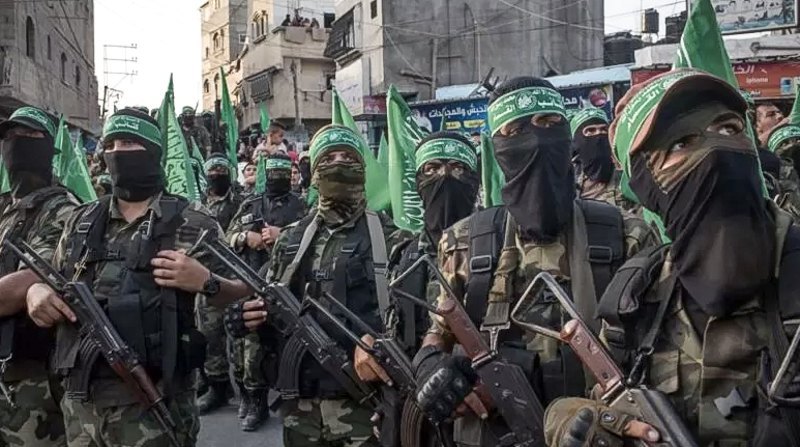
Russia-Hamas ties
Over the years, the Hamas terror organization was a welcomed guest in Moscow, with several visits in recent years.[1][2] The heads of Hamas, Ismail Haniyah, his deputy Saleh al-Arouri, and Moussa Abu Marzouq met regularly with senior officials, including Foreign Affairs Minister, Lavrov and his deputy Bogdanov.[3] Last March, Russia also hosted a delegation of Islamic Jihad. On the 27th of October, a delegation of Hamas visited Moscow and met with Lavrov, and Bogdanov. During the visit, Hamas praised Putin for his long-time support and called to stop the US and Israel.[4] Hamas also said it will look for eight hostages with a Russian passport and free them.[5]
Despite experiencing acts of Sunni terrorism in the past, Russia maintains frequent connections with Hamas. Some notable incidents include the Beslan school massacre in 2004, which resulted in 330 casualties, the bombing of a Russian airplane by ISIS in Egypt in 2015, leading to the deaths of all 224 passengers, and the Moscow theater hostage crisis in 2002, among others.
While Russia listed Al-Qaeda, ISIS, the Muslim Brotherhood, and other Sunni terror organizations in its official list of terror organizations, Hamas which is a branch of the Muslim Brotherhood is not on the list.[6] There are several reasons explaining this: First, Hamas is a proxy of Russia's close partner, Iran. As the relations between Russia and Iran deepened following their shoulder-to-shoulder cooperation in Syria and Ukraine, Russia is willing to do more for Iran and its proxies. Second, Russia tries to disparage the US and its involvement in the Middle East. Russia claimed to host Hamas delegations to achieve intra-Palestinian reconciliation and help resolve the conflict as an alternative to US-led efforts.[7]
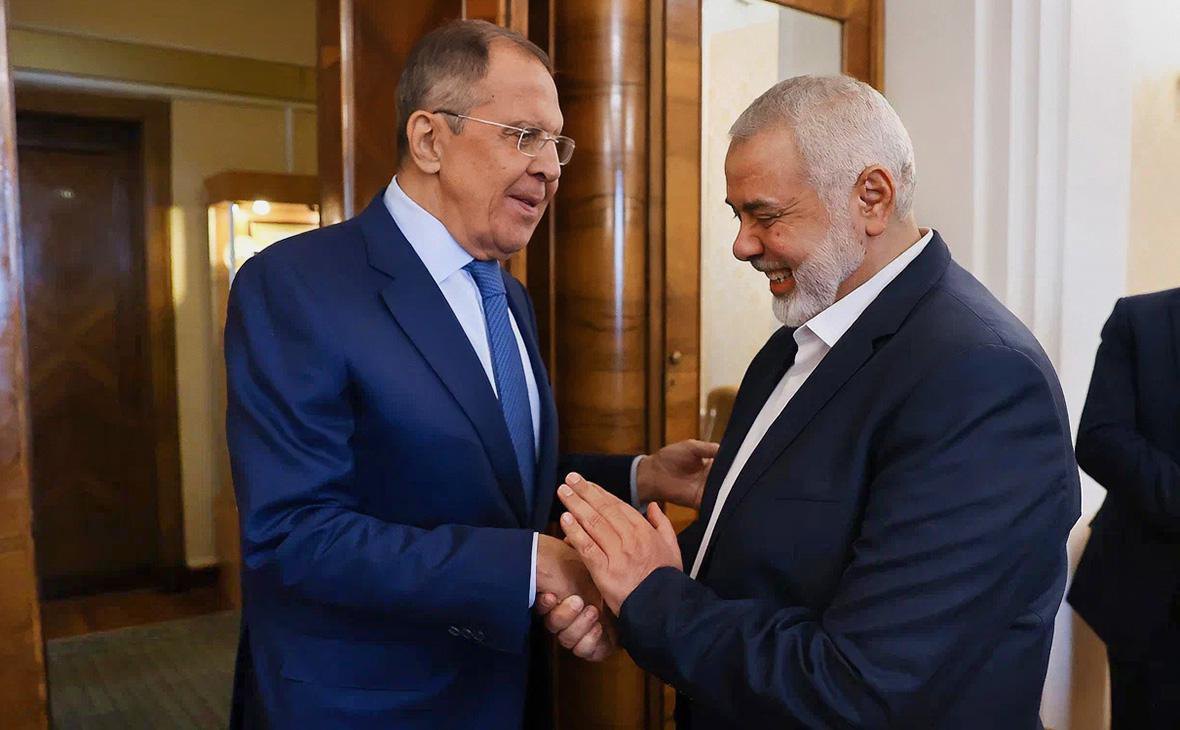
Hamas has acknowledged its close alliance with Russia following attacks against Israel and thanked Russia for its unwavering support. While Russia's backing of Hamas primarily takes a political form, there are indications of broader assistance to this organization with alleged links to terrorism.
On the political level, the messages coming from Moscow are clear. Following the horrendous terror attacks by Hamas, Russian Foreign Ministry Spokesperson, Zakharova was quick to announce:[8] “We call on the Palestinian and Israeli sides to implement an immediate ceasefire, renounce violence, exercise the necessary restraint and establish, with the assistance of the international community, a negotiation process aimed at establishing a comprehensive, lasting and long-awaited peace in the Middle East”.
This message reflected the Russian disconnection from reality, with an effort to prevent Israeli retaliation and its right to defend itself, without even mentioning Hamas. In addition, Putin compared between Israel's siege of Gaza and the siege of Leningrad by Nazi Germany.[9] Other affiliates of the Kremlin released anti-Israeli and antisemitic statements and propaganda, fueling a massive antisemitic campaign in Russian traditional and social media, exposing the usually under-the-surface antisemitism in Russia.
Here are some examples:
· Solovyov, a known shofar of the Kremlin, accused on his show that Israel wages a brutal war against Gaza unlike Russia in Ukraine. Adding that Russian never cuts off its enemy's electricity.[10]
· Russian media twisted Israel's minister of defense, Galant, words about destroying Hamas to compare it with Hitler and arguing that he actually called for a genocide of the Palestinians.[11]
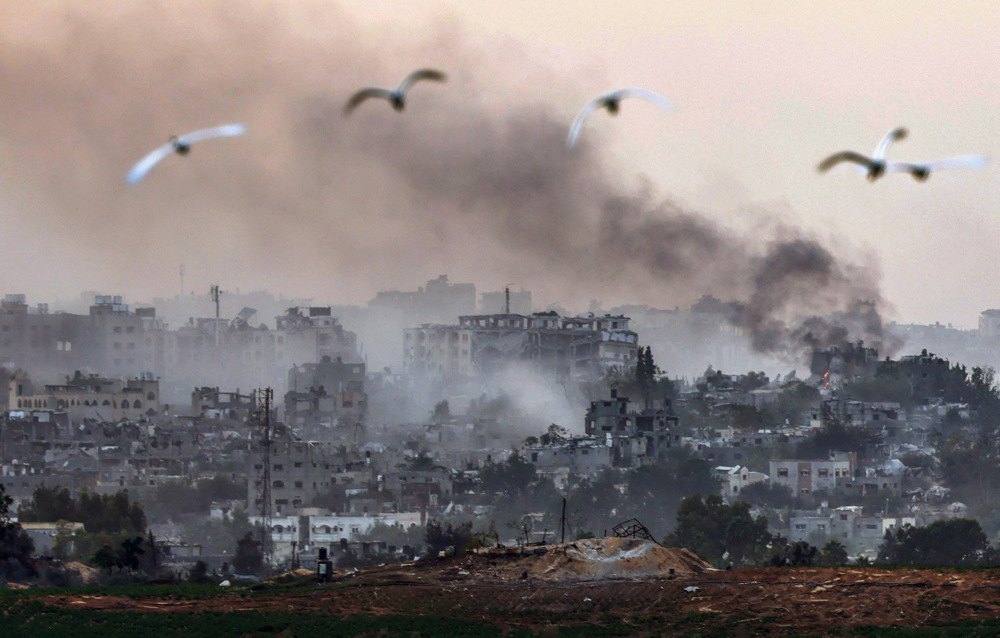
· Another Russian channel repeated the narrative about a genocide and added fake information about Israel bombing dozens of hospitals and schools.[12]
· In a different article, RIA novosty cited Ramzan Kadyrov who said: “the Israeli fascism, in its cruelty towards the Palestinians is probably worse than Hitler's.[13]
· Under this toxic environment, thousands of incited blood-thirsty people in Dagestan Republic stormed the local airport and hotels, searching to kill Israelis and Jews that were allegedly arriving to Dagestan on the 29th of October on a direct flight from Israel.[14]
New antisemitic, anti-American and anti-Ukrainian content appears every day on Russian media. Part of it is pure antisemitism and other part reflects what Russia sees as an opportunity to attack the US and its involvement in the Middle East, while drawing a line between the Middle East to Ukraine, with narratives aimed at weakening Support of Ukraine.
In addition, Moscow called for an emergency discussion of the UN Security Council, calling for a humanitarian ceasefire in Gaza. The Russian draft resolution did not go through as it fell short of achieving a majority.[15] Again, the Russians failed to condemn Hamas and ignored its barbaric atrocities against civilians. To be clear, this is not a balanced nor neutral position by Russia, which indicates another deterioration in bilateral relations with Israel.
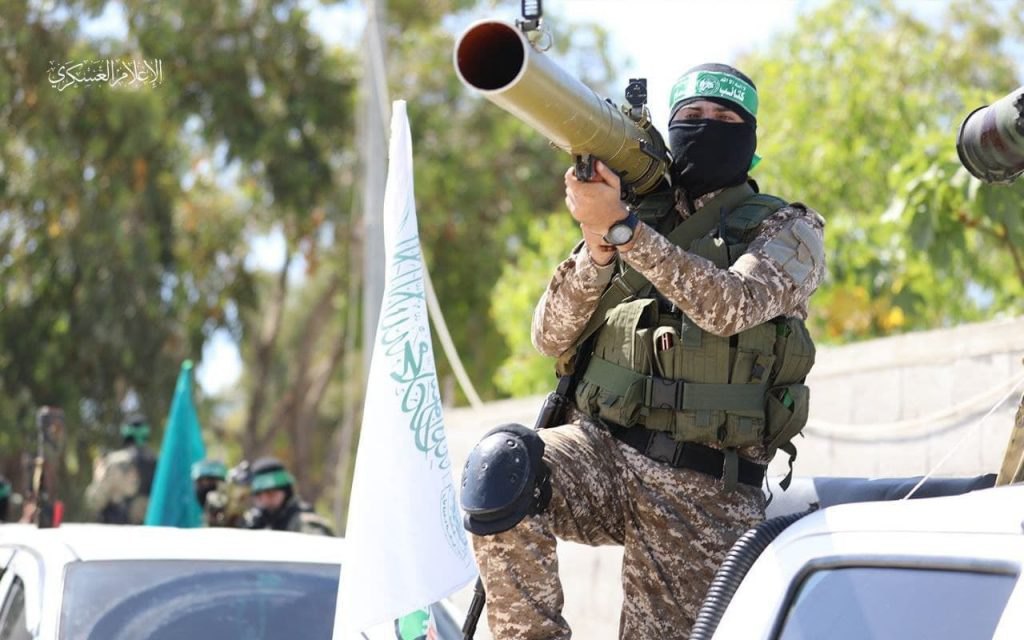
In addition, there are indications that Russia's support went beyond the political level. Hamas used weapons manufactured in Russia, such as the AK-47, RPG, and Kornet anti-tank missiles[16], DPRK made such as F-7 RPG and 122mm artillery shells, and Iran made such as AZ111-A2 60mm mortar fuses, M112 demolition charges and newer.[17] Moreover, paramilitary groups such as Wagner are suspected of training Hamas and Hezbollah terrorists. Lastly, Russian online crypto platforms were used by Hamas to transfer millions of dollars to their terror activity, in addition to funds in Qatar, violating sanctions.[18]
Russia's interests in the Middle East and ties with Israel
Russia's primary regional partner is Iran, with extensive cooperation across economic, security, and intelligence domains. Their relationship deepened during the prolonged conflict in Syria, where they collaborated to support the Assad regime.[19] While operating in Syria under the Russian umbrella, Iran was able to provide arms to various groups, including pro-Iranian terrorists in Syria and Hezbollah in Lebanon. Recently, it was reported that after airports in Aleppo and Damascus were put out of action, Iranian and IRGC cargo planes began using the Russian airbase “Khmeimim” in Syria.[20]
Following Russia's invasion of Ukraine and the revelation of Russian vulnerabilities, Iran rushed to assist by supplying drones and weapons.[21] As a result, Iran is no longer a minor party in these relations and is considered at least an equal partner, particularly in the Middle East. This dynamic limits Russia's ability to play a constructive role in Israel's northern border and associates Russia with what some describe as an "axis of evil."
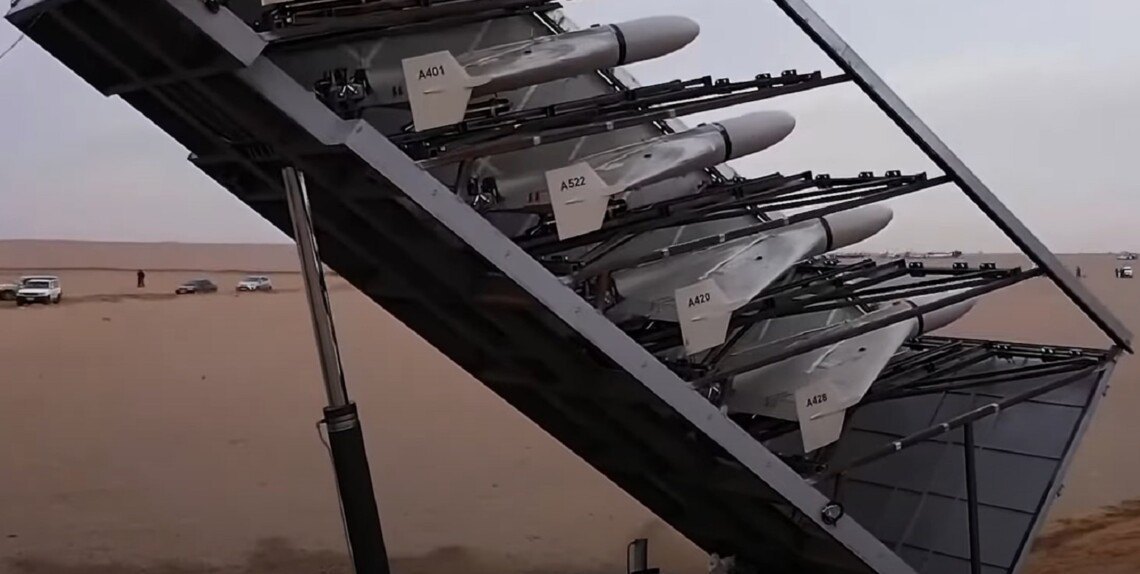
Geopolitically, Russia could benefit from the conflict in Gaza by diverting international attention from Ukraine to Israel, thereby occupying American attention on two fronts. In this context, Hamas is seen as a means to destabilize the region. Furthermore, the resulting instability in the Middle East could lead to rising energy prices, which would benefit Russia, particularly as the winter season approaches. Additionally, the potential shift in the Middle East's political landscape following a possible normalization between Israel and Saudi Arabia could pose risks to Russia's interests in the region and diminish its influence vis-à-vis the Arab world.
Since Russia's involvement in Syria in 2015 and even earlier, Israel considered Russia a responsible power that could use its influence to prevent Iran and the Assad regime from posing a significant threat to Israel. This policy occasionally achieved minor successes, with a hotline between the Russian command in Syria and the IDF instrumental in de-escalation efforts. Russia-Israel bilateral relations also deepened.
Russia's current stance highlights a divergence of interests between Russia and Israel, revealing what some perceive as anti-Semitic tendencies within Russia and its alignment with what's often characterized as an "evil axis." Even in the aftermath of Russia's invasion of Ukraine, Israeli policymakers clung to the outdated notion that Israel should maintain a low profile due to national security concerns on its northern border, as if Russia could still be relied upon to curtail Iran's activities. Just as Israel had misconceptions about Hamas, it failed to recognize the shifting dynamics of Russia's power and its potential influence over Iran. If the conflict in Ukraine wasn't enough to prompt a policy shift in Israel, Russia's current position regarding Hamas should serve as a wake-up call for the government.
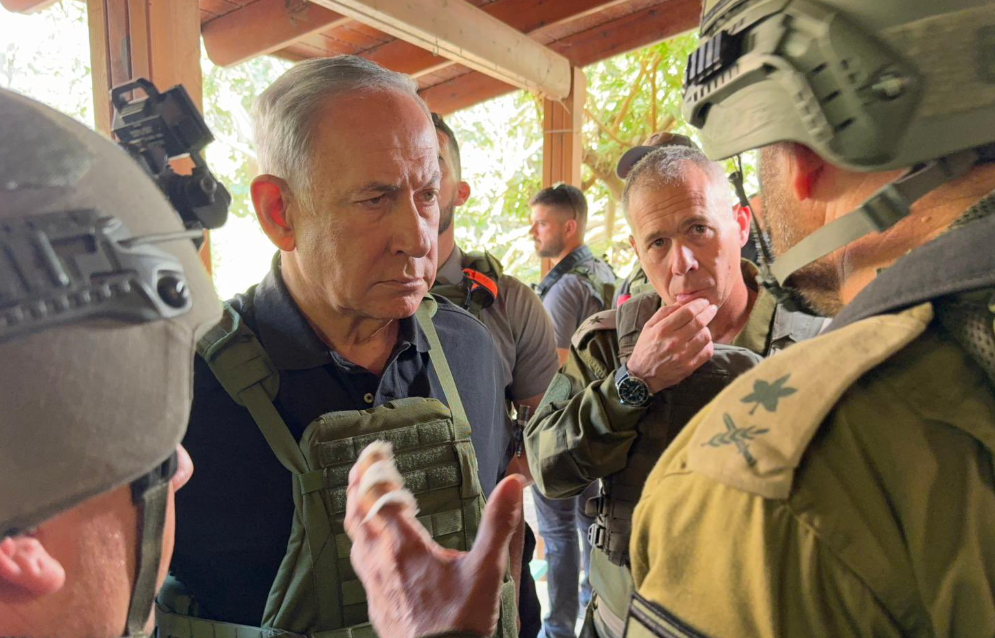
What should Israel do now?
Since the war against Hamas began, the level of antisemitism in Russia is on the rise. Antisemitic expressions are common now in Russia, whether on traditional media, social media or official statements by the Kremlin including Putin himself. In addition, due to Russia's position on Israel's war against Hamas, it cannot play a constructive role in the region anymore.
Israel should reevaluate its fundamental assumptions regarding Russia's role in the region, its capacity to influence Iran and its proxies in alignment with Israeli interests, as well as its ability to impact Israel's national security directly. This reassessment should lead to a set of measures across a spectrum of responses, ranging from symbolic gestures to more assertive actions that the Israeli government can employ in response to Russian actions.
As a starting point, without completely severing ties with Russia, Israel should consider to schedule a meeting with the Russian ambassador in Israel to express condemnation of Russia's support for Hamas. So far, the Israeli MFA released one puny statement following Hamas' visit in Moscow, “condemning the invitation, which is an act of support of terrorism and legitimizes the atrocities of Hamas terrorists. Israel called on the Russian government to expel Hamas immediately.”[22] This statement did not condemn Russia, nor addressed its assistance to Hamas.
Secondly, Israel needs to invite the President of Ukraine, Zelensky, for an official visit, allowing him to demonstrate solidarity with Israel, which he has expressed interest in but was declined by the Israeli government. Such a visit should open the door to exploring avenues to enhance security support for Ukraine, excluding the provision of lethal systems at this time. While Israel may not be at the forefront of supplying lethal weapons to Ukraine, especially at a time of war, it can offer other defense technologies.
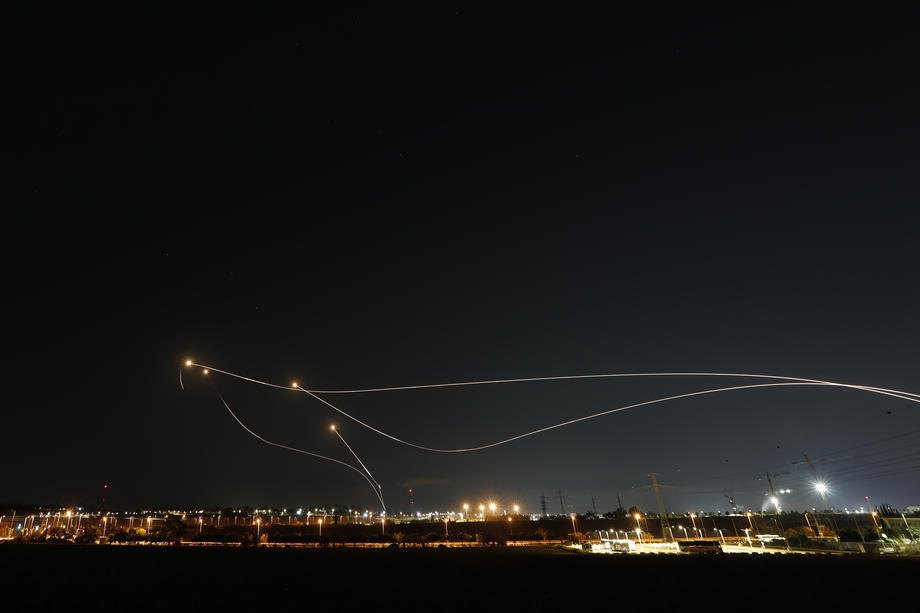
Thirdly, Israel should not enable Russia to play any role in the unfolding events related to the war, the hostages, the region or the international community. Any Russian involvement will be later used as a way to interfere with existing efforts and further destabilize the region.
Israel should also switch its recognition of Victory Day over Nazi Germany to the 8th of May, consistent with most of the Western world, as Israel is currently one of the few Western countries, along with some Balkan states, commemorating Victory Day on the 9th of May, as officially decided by the Israeli parliament.[23] Its importance goes beyond a symbolic ceremony, and is directly connected to Russia's cynical efforts to rewrite history and use it as part of its psychological warfare against Ukraine, as if they fighting nazis in Ukraine like the red army did in Europe during World War 2.
Another bilateral step is to reconsidering or at least refraining from implementing the agreement on cinema cooperation between the two countries, as it is seen as a tool of Russian propaganda with limited cultural value.
Finally, Israel can review the visa-free policy between the two countries. Given the significant decrease in Russian tourists visiting Israel since the Russian invasion of Ukraine, it may be appropriate to reconsider this policy.
These steps will not only serve Israel's national security interests more effectively but also have a clear message on Israel's alignment with the west, a potential to regain respect from Russia, which often responds to displays of strength and may not respect perceived weakness. Moreover, it might free Israel from the security conception that limits its actions in the north due to fear of a collateral damage to Russian interests.
[1] https://www.al-monitor.com/originals/2023/03/hamas-says-leadership-visited-russia-met-sergey-lavrov
[2] https://www.mid.ru/en/foreign_policy/news/1512358/
[3] https://mid.ru/ar/1428688/?lang=en
[4] https://www.firstpost.com/world/russia-hosts-hamas-delegation-and-iran-minister-discusses-israel-war-faces-backlash-13306032.html
[5] https://www.timesofisrael.com/hamas-said-to-tell-moscow-its-looking-for-8-russians-among-hostages-will-free-them/
[6] http://en.nac.gov.ru/unified-federal-list-organizations-including-foreign-and-international-designated-terrorist-courts.html
[7] https://www.timesofisrael.com/russia-said-to-make-push-for-intra-palestinian-reconciliation/
[8] https://www.themoscowtimes.com/2023/10/07/russia-calls-for-immediate-ceasefire-in-gaza-a82694
[9] https://www.jpost.com/breaking-news/article-768119
[10] https://twitter.com/francis_scarr/status/1712017935563215228
[11] https://tsargrad.tv/news/politolog-vskryl-samyj-bolshoj-pozor-izrailja-prosto-sravnite-skazannoe-palachami_885057
[12] https://ria.ru/20231013/izrail-1902376854.html
[13] https://ria.ru/amp/20231029/kadyrov-1905907634.html
[14] https://www.theguardian.com/world/2023/oct/29/mob-storms-dagestan-airport-in-search-of-jewish-passengers-from-israel
[15] https://news.un.org/en/story/2023/10/1142817
[16] https://www.terrorism-info.org.il/en/hamass-use-of-anti-tank-kornet-missiles-supplied-by-iran-and-hezbollah/
[17] https://www.longwarjournal.org/archives/2023/10/hamas-used-iranian-produced-weapons-in-october-7-terror-attack-in-israel.php#:~:text=Hamas'%20use%20of%20Iranian%2Dproduced,Iranian%20weapons%20to%20attack%20Israelis.
[18] https://www.wsj.com/finance/currencies/garantex-russian-crypto-hamas-crime-sanctions-a3648357
[19] https://www.csis.org/analysis/evolution-russian-and-iranian-cooperation-syria
[20] https://www.syriahr.com/en/314450/
[21] https://www.reuters.com/world/exclusive-iran-agrees-ship-missiles-more-drones-russia-defying-west-sources-2022-10-18/
[22] https://twitter.com/LiorHaiat/status/1717592919220056382








